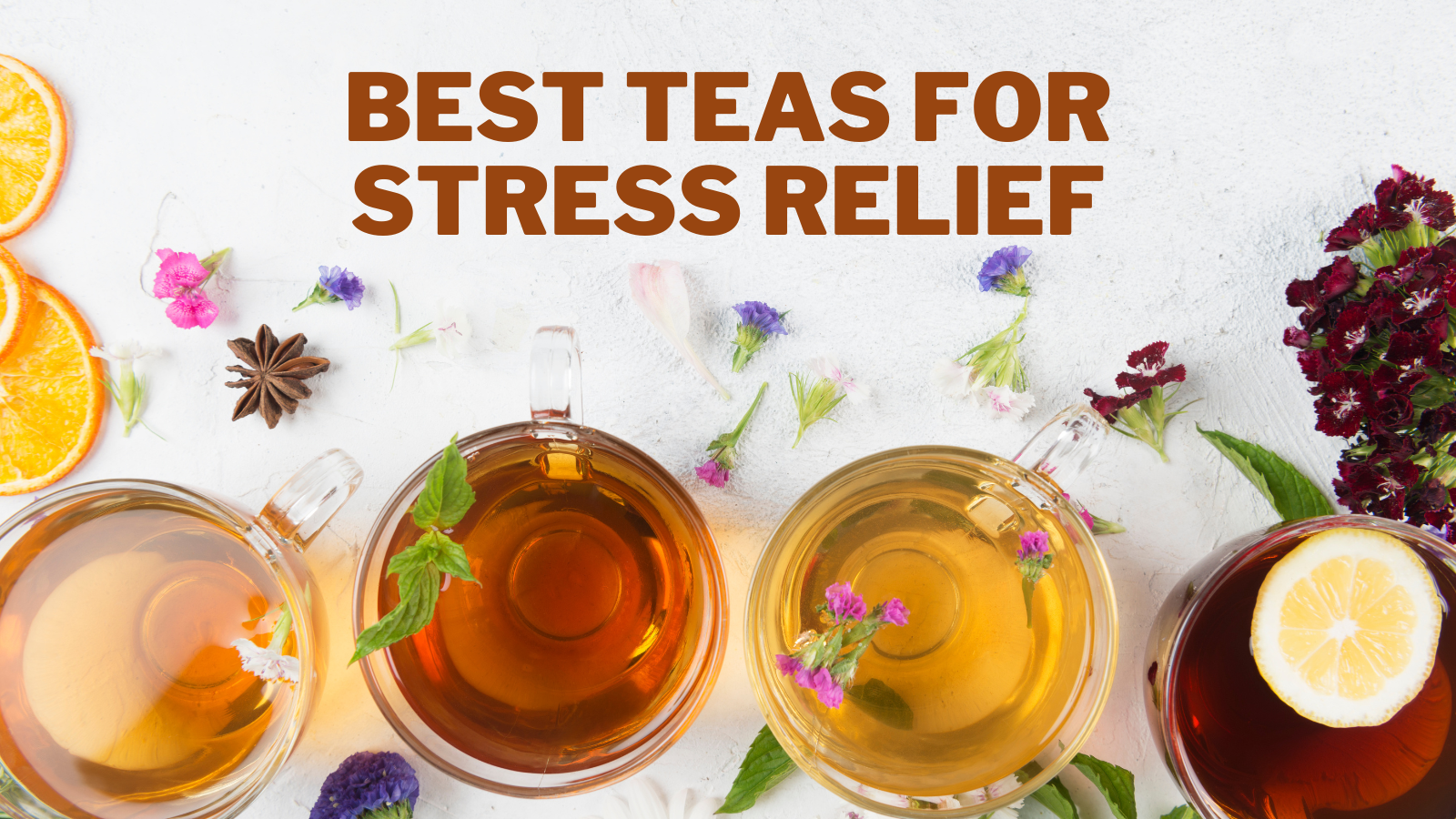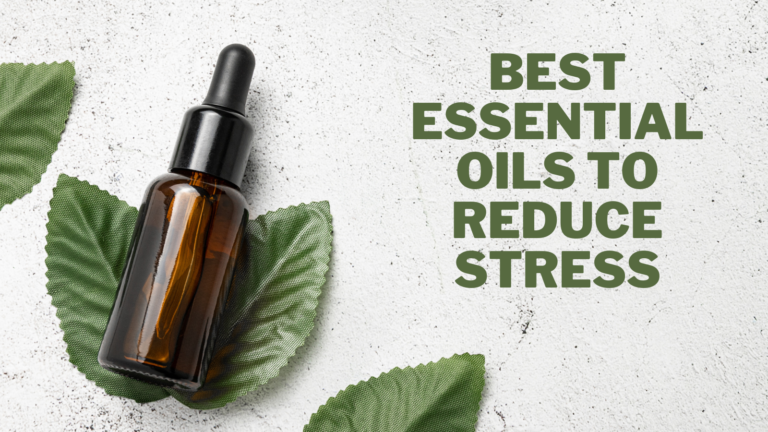Best Teas For Stress Relief
You could occasionally feel as though you're living under pressure due to the stress of modern life. We're all looking for a release valve, and a soothing cup of tea might be it.
The best part is that a cup of tea is quick, cheap, pleasurable, and may help reduce some tension. Tea has a lengthy history and can perform multiple tasks. It can revitalize and refresh you while also helping to slow you down.
According to legend, tea drinking started more than 5000 years ago when some tea leaves unintentionally blew into the boiling water of the Chinese monarch.
In this article, we explore some of the best teas for stress relief and introduce readers to the world of teas.
We will discover several possibilities to suit various tastes and inclinations, ranging from teas recognized for their adaptogenic effects to those known for their ability to induce relaxation.
Join us as we learn about the most calming teas, whether you're a tea connoisseur or just starting out.
Benefits Of Teas As Stress Relievers
Since ancient times, people have valued tea as a natural stress reliever because of its warming aroma and calming qualities.
There is a tea out there that can help reduce tension and promote inner quiet, whether you enjoy the delicate flavours of green tea, the strength of black tea, or the herbal blends of chamomile and lavender.
Tea is a delectable beverage with many positive physical and mental health effects. The following are some of the tea's main advantages:
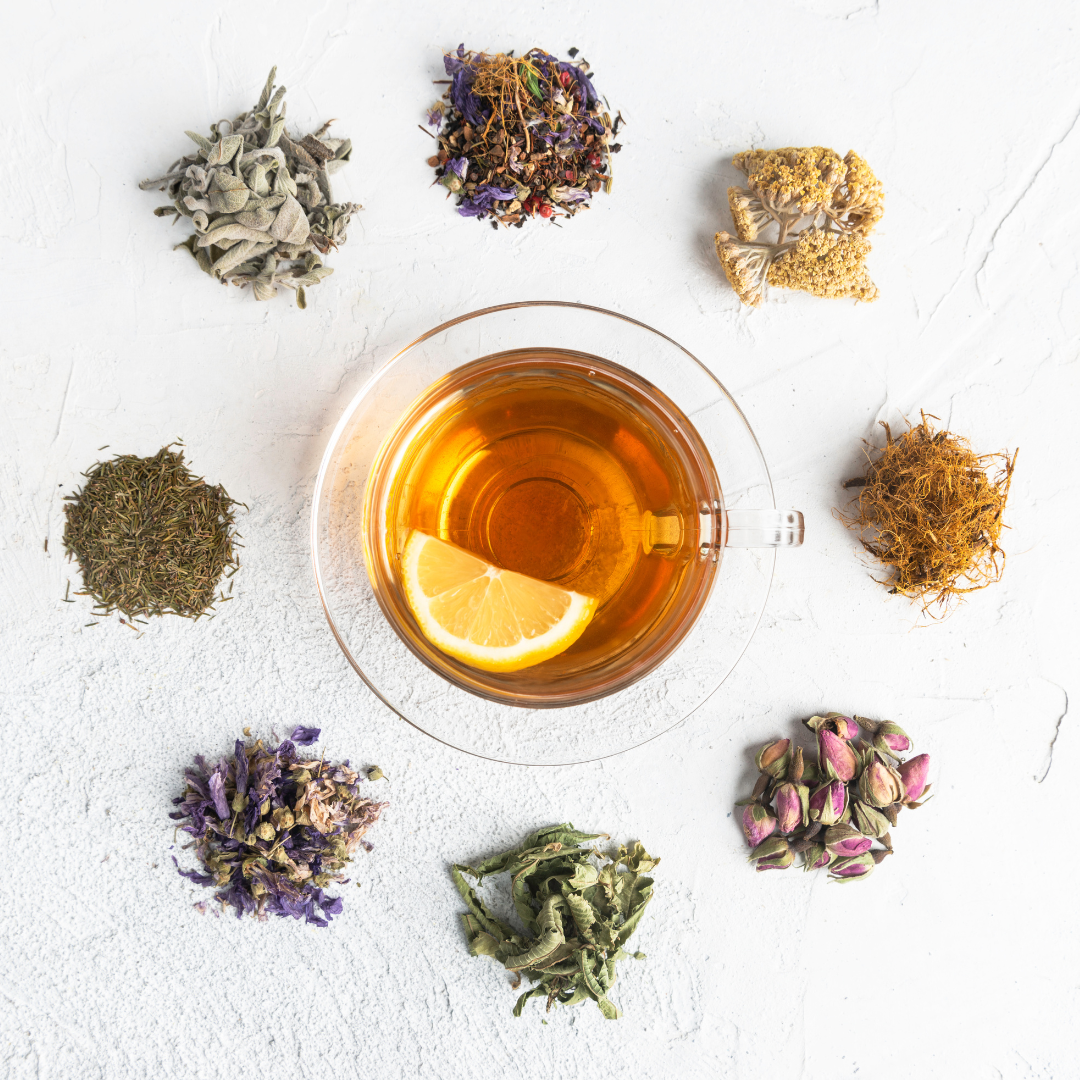
1. Stress Reduction
Tea has natural anxiety and stress-relieving qualities that can aid in relaxation. Some teas, like chamomile, lavender, and lemon balm, include ingredients that relax the body and mind, reducing tension and fostering serenity.
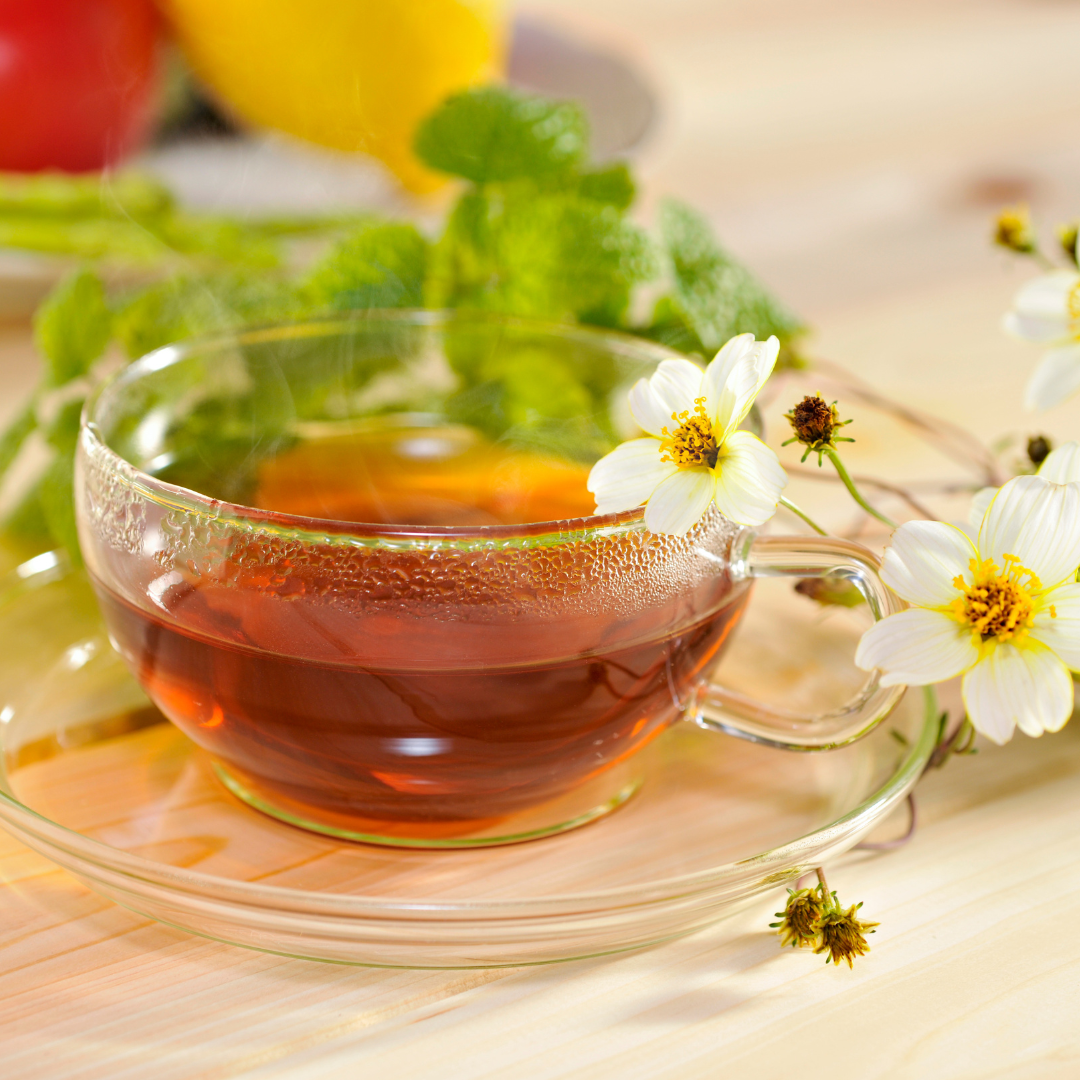
2. Tea Is An Antioxidant Powerhouse
Antioxidants are healthy substances that help shield our cells from damage by free radicals. Chronic diseases like heart disease, cancer, and neurological disorders have been shown to have a lower risk in people who consume antioxidants.
3. Boosts Immune System
White and green teas are well known for strengthening the immune system. They include polyphenols and antioxidants that assist in maintaining a strong immune system and preventing disease.
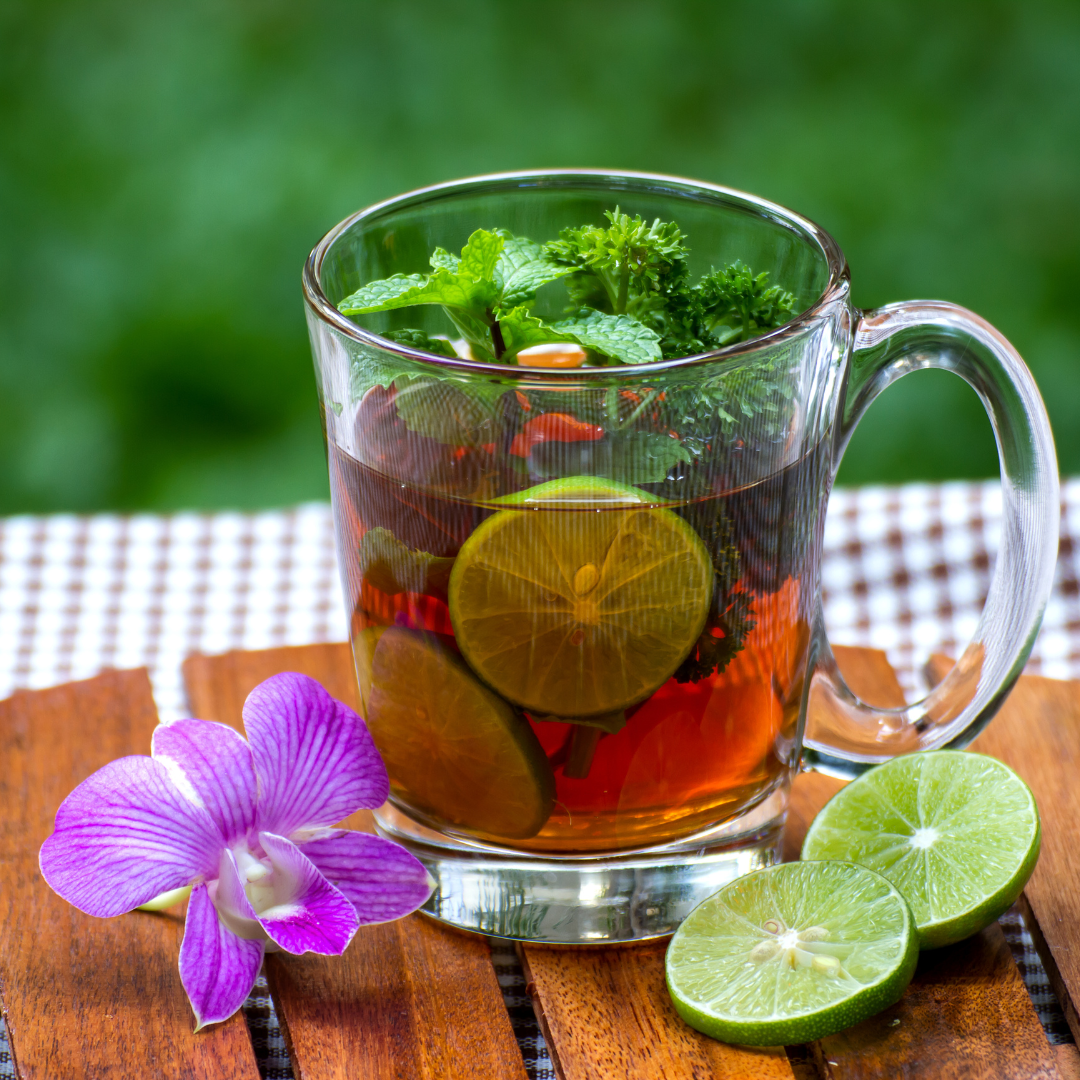
4. Relaxation And Better Sleep
Many herbal teas, including those made from chamomile, valerian root, and passionflower, offer calming effects that can help to encourage better sleep. These teas can aid in body and mind relaxation, making it simpler to drift off to sleep and have a good night's rest.
5. Digestive Aid
Some teas, like peppermint and ginger tea, were historically used to support digestion. They can lessen bloating, ease indigestion symptoms, and ease digestive discomfort.
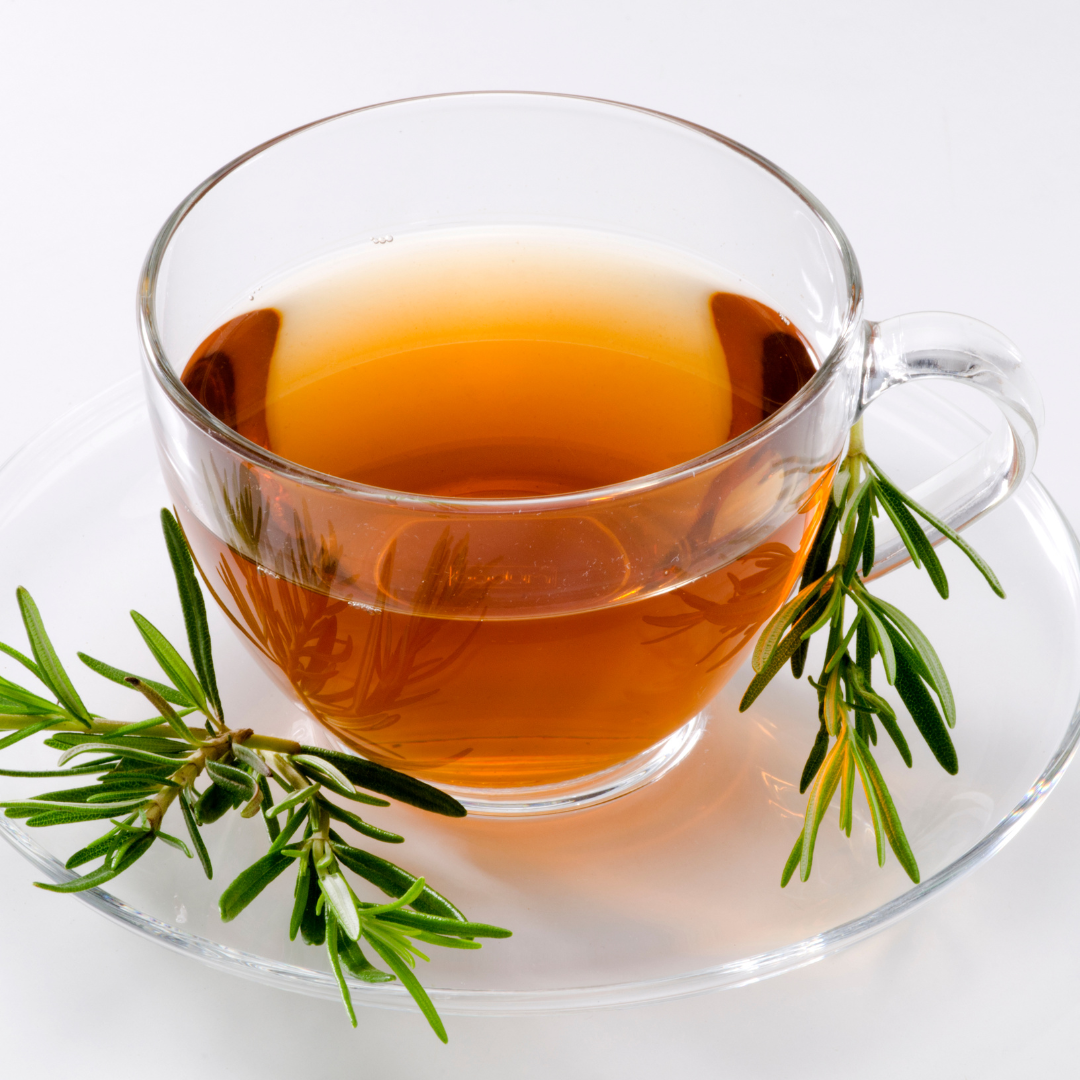
6. Hydration
Drinking tea is a great way to stay hydrated all day. Even though tea contains caffeine, a mild diuretic, its overall water content helps meet your daily fluid requirements.
7. Mental Acuity And Focus
Tea, especially black and green tea, includes L-theanine and caffeine. This combination can improve attention, increase mental alertness, and foster a sense of peace and relaxation without the jittery side effects frequently associated with other caffeinated beverages.
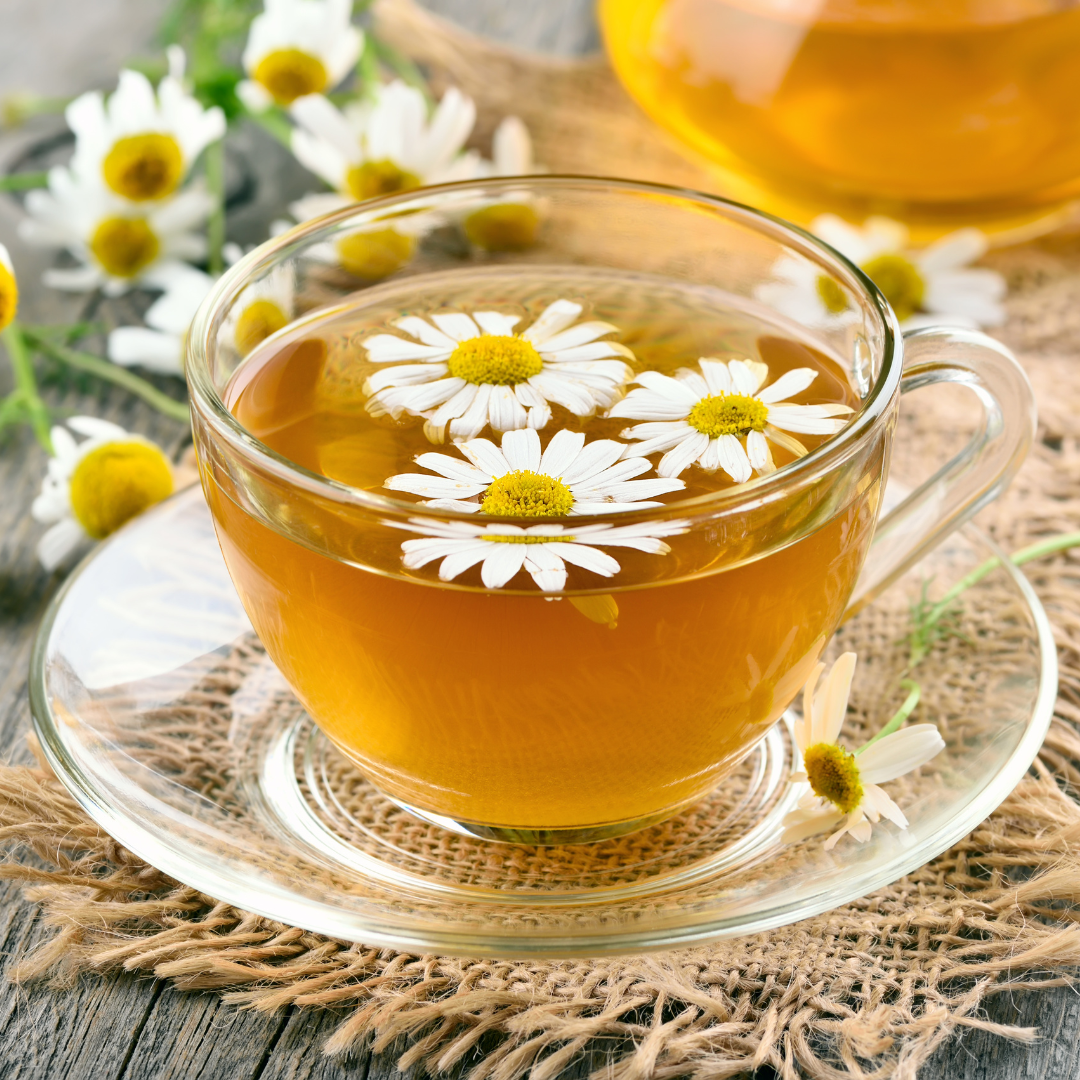
8. Weight Management
Green and oolong teas are particularly associated with weight loss and metabolic enhancement. These teas may support weight loss by raising calorie expenditure and fat oxidation.
9. Heart Health
Regularly drinking tea, particularly black, green, and hibiscus tea, is linked to a lower risk of heart disease. These teas promote cardiovascular health by lowering blood pressure, encouraging healthy blood vessel activity, and lowering cholesterol levels.

10. L-Theanine Content
L-theanine is an amino acid found in tea, especially green tea. The capacity of L-theanine to encourage relaxation without making people sleepy is well-known.
It increases the brain's ability to produce alpha waves, connected to feelings of mental clarity and calm. This may reduce tension and enhance concentration and focus.
11. Benefits Of Aromatherapy
Aromatic herbs like lavender, chamomile, or peppermint can be added to herbal drinks to enhance their therapeutic properties. Their peaceful aromas can help relieve tension and encourage relaxation by calming the mind.
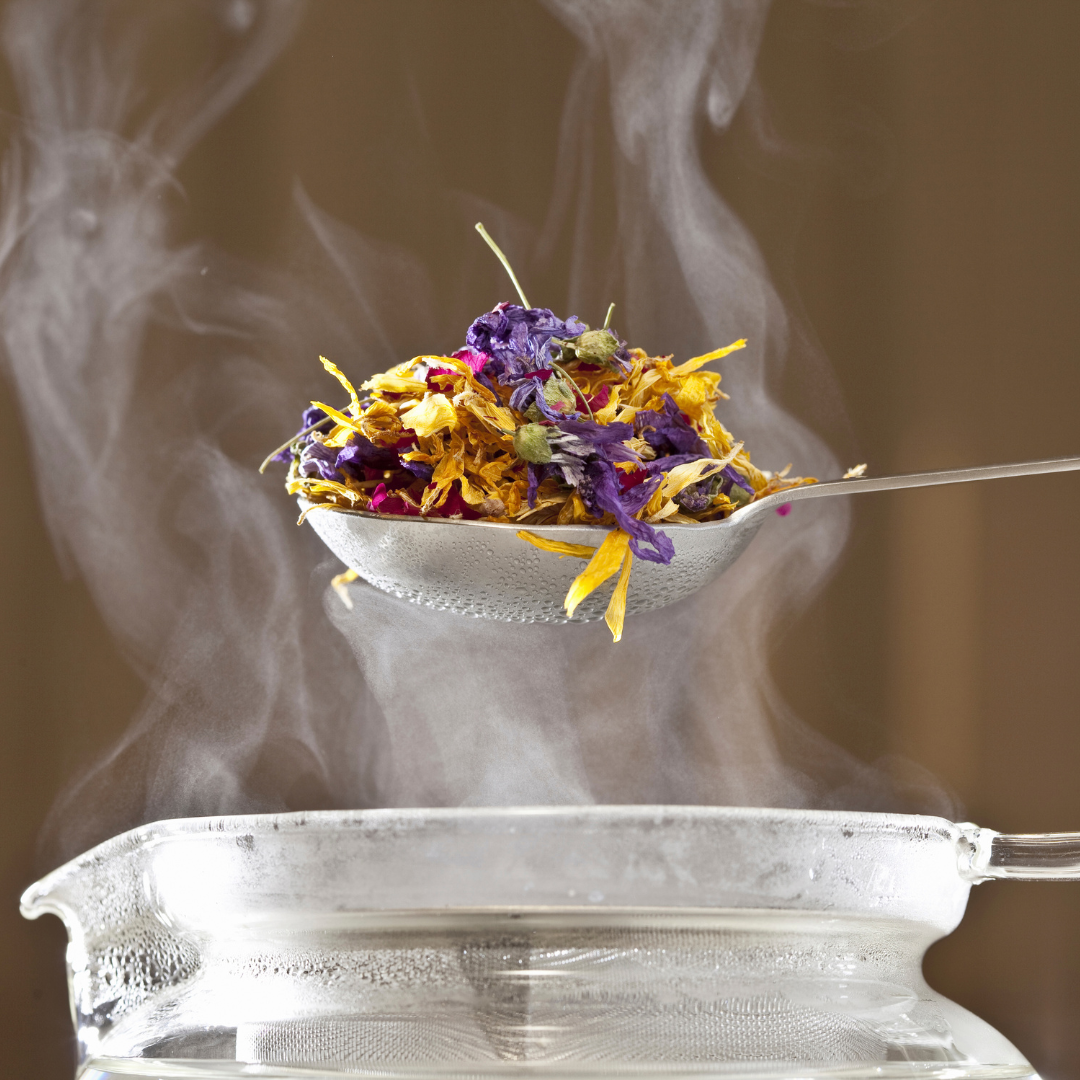
12. Reduced Caffeine Content
Tea does contain caffeine. However, it does so in a lesser amount than coffee. To achieve a calmer state of mind, choosing teas with lower caffeine content, such as herbal or green tea (which has less caffeine than black tea), will help minimize the jittery feelings frequently linked to high caffeine use.
It's vital to note that every person will react differently to different types of tea, so it's crucial to select the tea and brewing technique that suits you the best.
In addition, while a cup of tea may temporarily reduce stress, it's important to address the root causes of stress and consider alternative stress-reduction methods for long-term well-being.
Create a Profitable Holistic Business That Transforms Lives
🌿 Discover inspiring holistic business ideas that blend nature, wellness, and purpose.
Learn how passionate nature lovers are building income streams while helping others live more balanced, mindful lives.
Read Profitable Holistic Business Ideas That Transform Lives
Best Tea For Stress Relief
A few options have proven beneficial when picking the best tea to relieve stress. The top teas with proven stress-relieving qualities are described in more detail below:
1. Chamomile Tea
Chamomile tea, made from the dried flowers of the chamomile plant, is known to have relaxing and stress-relieving effects.
Apigenin, a bioactive component found in chamomile tea, is an antioxidant with anxiolytic (anti-anxiety) properties.
Apigenin attaches to particular brain receptors called GABA-A receptors that help control neurotransmitters involved in anxiety and the stress response.
This GABA-A receptor interaction encourages relaxation and serenity. Chamomile tea's relaxing effects make it a popular natural sleep aid.
Chamomile tea can enhance sleep quality by encouraging relaxation and lowering anxiety. Using it before bed may help calm racing thoughts, promote tiredness, and promote more restful sleep.
Chamomile tea's modest muscle-relaxing effects make it useful for easing tension and encouraging general relaxation. It might help reduce tense muscles, relax stress-related bodily symptoms, and promote stress reduction.
Anxiety and stress can increase bodily inflammation, which can harm general health. Chamomile tea's anti-inflammatory properties can lessen inflammation and its symptoms.
Chamomile tea might indirectly help alleviate stress by lowering inflammation. It also has benefits for aromatherapy and has effects on the body.
Chamomile's delicate perfume can be inhaled to reduce tension and promote tranquillity. Its calming impact on the mind and senses is well-known.
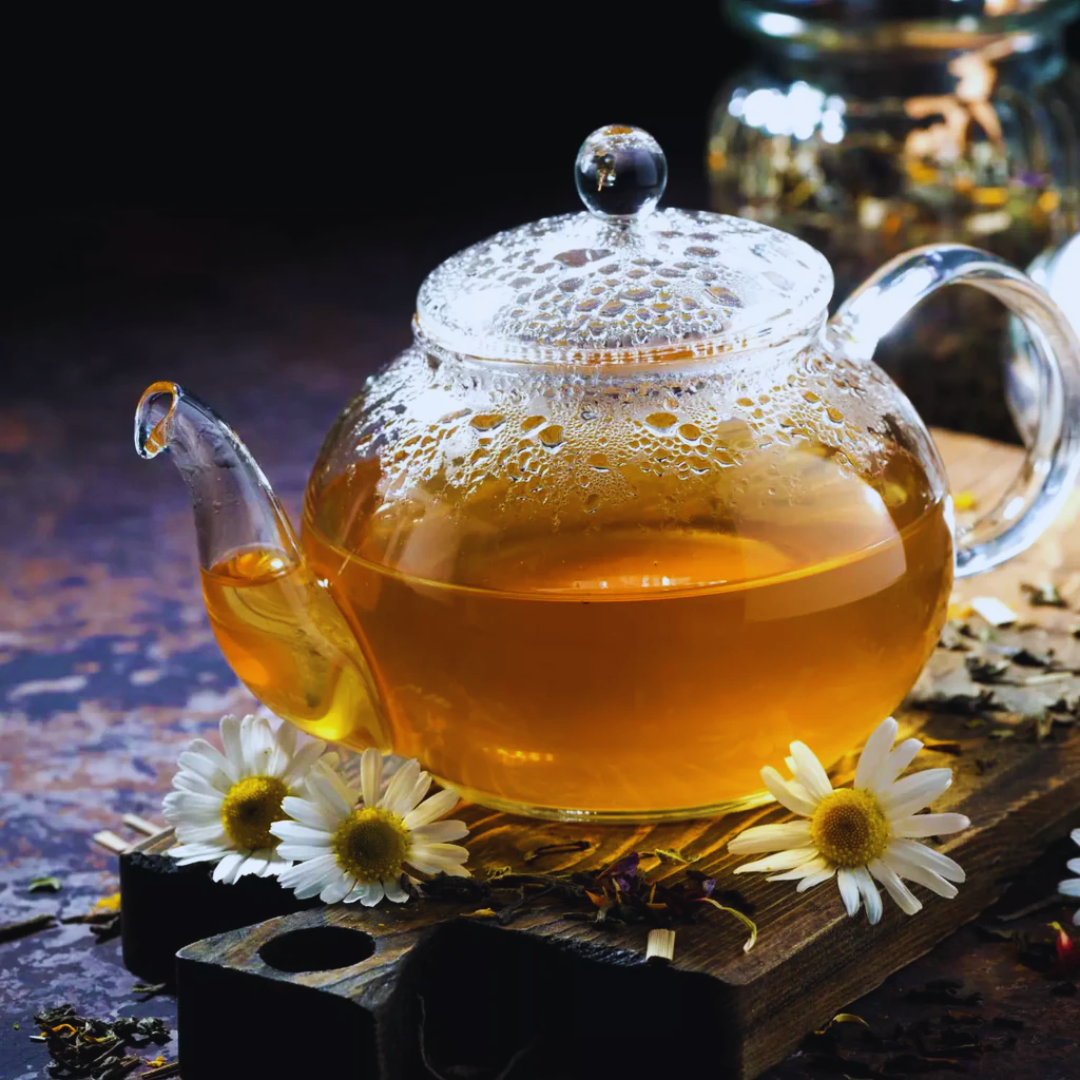
2. Green Tea
L-theanine, an amino acid found almost solely in tea leaves, is credited with helping green tea relieve stress. Green tea is well known for its many health advantages.
It was discovered that L-theanine directly affects how the brain and mood are regulated. When ingested, it can pass the blood-brain barrier and encourage the synthesis of the neurotransmitters serotonin and dopamine, which are linked to emotions of pleasure and well-being.
Increased levels of these neurotransmitters help people feel calmer and more focused, which lowers stress and anxiety.
Another important impact is the ability of L-theanine to promote the generation of alpha brain waves. Alpha waves are connected to a calm yet aware mental state frequently attained via deep breathing or meditation.
L-theanine creates a state of calm attention and can help lessen the damaging effects of stress on the body and mind by enhancing alpha-wave activity.
While L-theanine and caffeine naturally occur in green tea, it was discovered that they have special benefits. While L-theanine works synergistically with caffeine to lessen possible negative effects, such as jitters and anxiety, caffeine is a stimulant that can boost alertness.
L-theanine, present in green tea, helps counteract the euphoric effects of caffeine, providing a smoother and more prolonged energy increase without the crash.
Antioxidants, especially catechins, are abundant in green tea and are related to several health advantages. Free radicals can produce oxidative stress on the body and can be increased during stress. Antioxidants help protect the body from this type of stress.
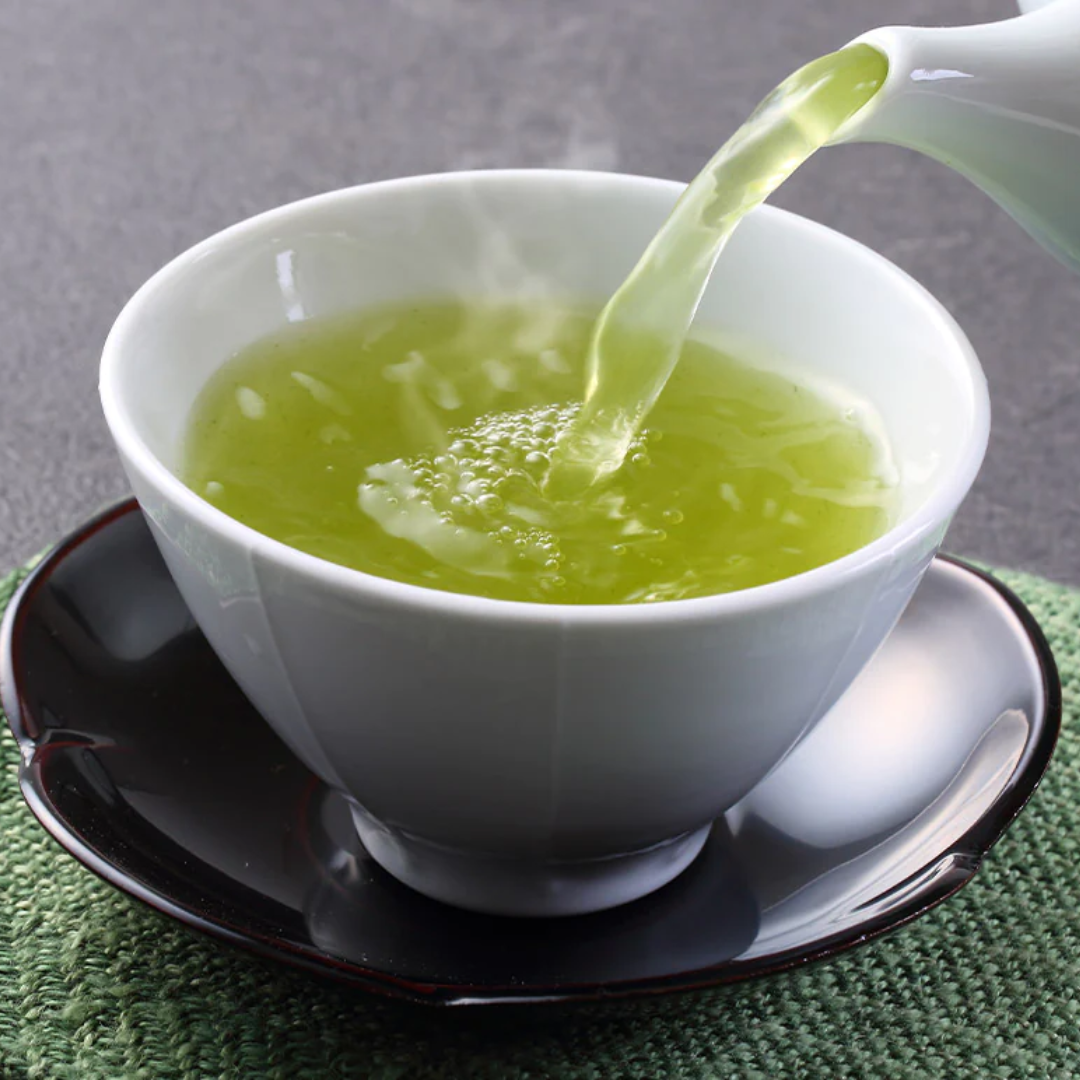
3. Lavender Tea
Infusing dried flowers in hot water creates a calming herbal infusion called lavender tea. Lavender has a long-standing reputation for being peaceful and de-stressing, and drinking lavender tea is a gentle and natural way to feel these benefits.
Linalool and linalyl acetate are aromatic compounds in lavender that give it its distinctive scent. It was discovered that certain substances, when inhaled or consumed, have soothing effects on the neurological system.
Dried lavender flowers are brewed into a tea, producing these aromatic constituents. The brew is soothing and refreshing.
Natural sleep aids like lavender are frequently employed. People who struggle with insomnia or restless sleep may find them helpful because of their calming effects, which can help settle the mind and encourage a sense of tranquillity.
Consuming lavender tea before bed may help create a sleep-friendly environment. Prolonged stress can damage mental and physical health.
Lavender tea is a natural approach to reducing stress. It encourages relaxation and offers a brief moment of peace during a busy day.
Making and enjoying a cup of lavender tea can also be a meditative technique that helps to divert attention from tensions and fosters a sense of serenity.
Additionally, drinking lavender tea may alleviate many stress-related digestive problems like indigestion, bloating, and stomach discomfort.
Its calming effects may aid in reducing stress, promoting better digestion, and relaxing the gastrointestinal tract's muscles.
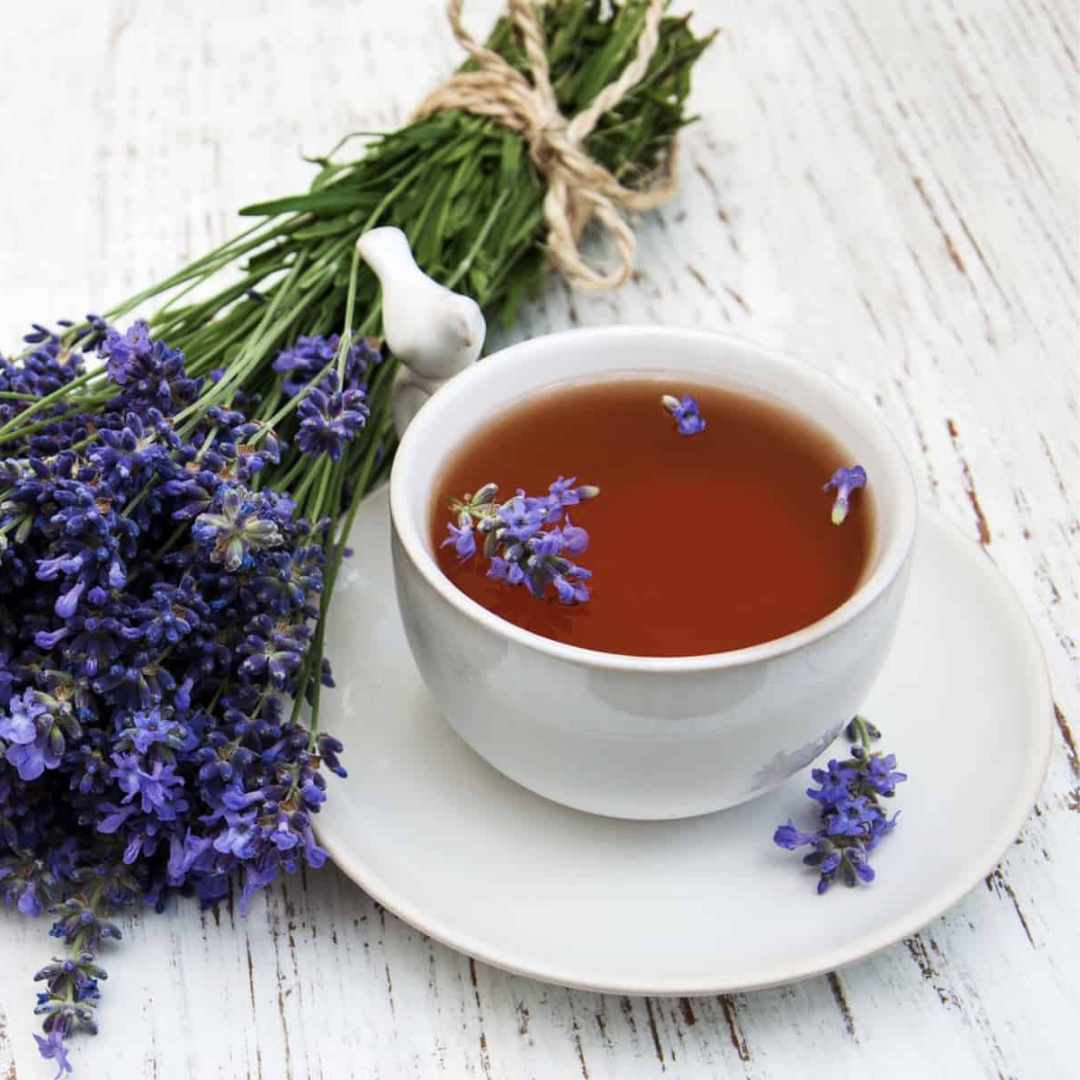
4. Lemon Balm Tea
The leaves of the lemon balm plant, commonly known as Melissa officinalis, are used to make the delicious herbal infusion known as lemon balm tea. Lemon balm has a long history of being used for its calming effects on the nervous system.
Rosmarinic acid and flavonoids, two naturally occurring substances in lemon balm, are soothing. These substances interact with specific brain receptors linked to relaxation, lowering tension and anxiety.
Lemon balm tea is a fantastic option for stress treatment. It can induce a pleasant sensation of tranquillity and reduce tension.
Lemon balm has been used for centuries to elevate mood and enhance mental health. It is thought to have modest antidepressant properties that encourage optimism while easing anxiety and depressive symptoms.
Lemon balm tea can be a calming and mood-enhancing experience. Its beneficial properties promote optimal nervous system functioning.
It was observed to alter neurotransmitters, including gamma-aminobutyric acid (GABA), which is crucial for encouraging relaxation and reducing stress levels.
Lemon balm tea can help you manage stress and improve your well-being by bolstering your nervous system.
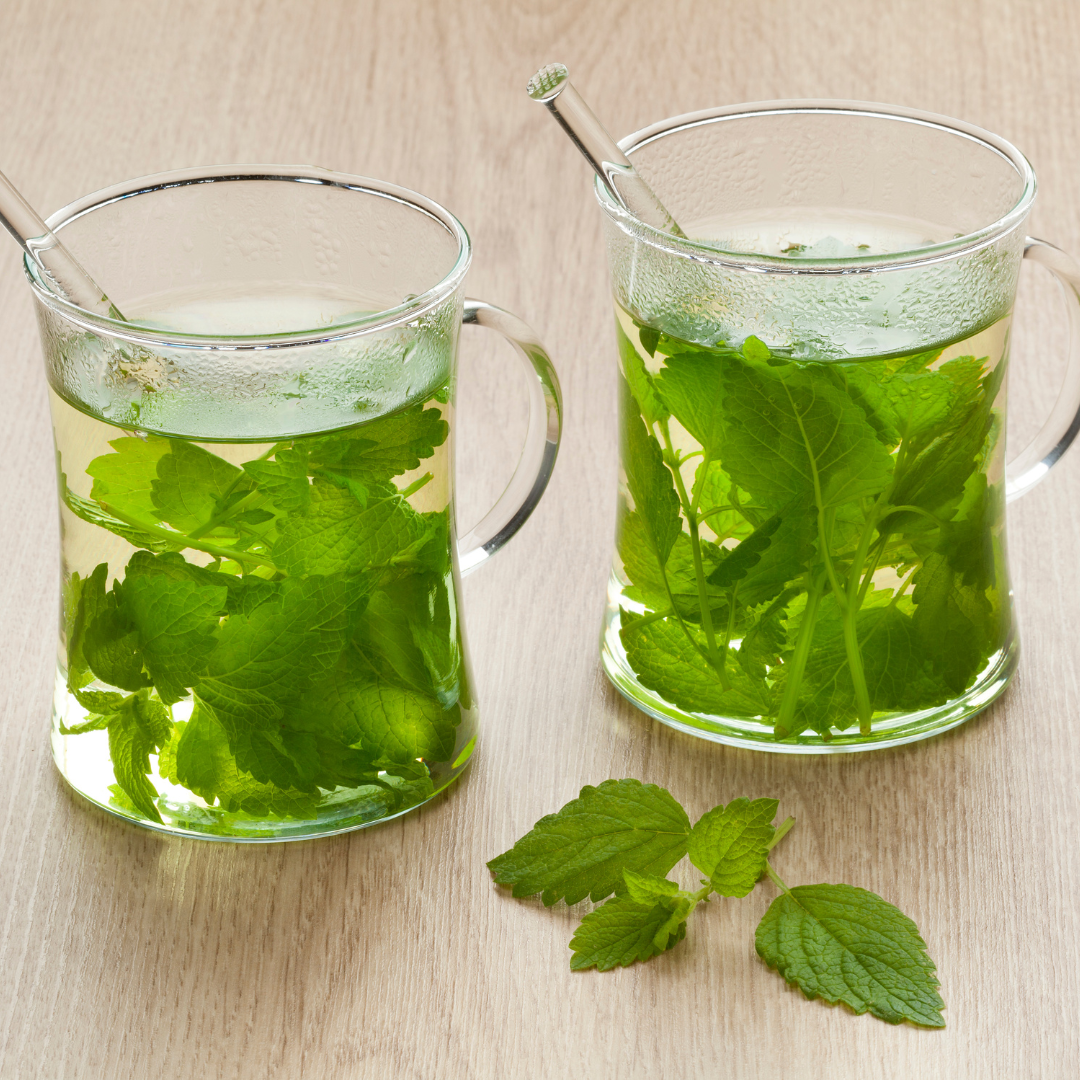
5. Ashwagandha Tea
Ashwagandha tea is made from the roots of Withania somnifera, an adaptogenic herb highly valued in Ayurvedic medicine for its stress-reducing effects.
As an adaptogen, ashwagandha helps the body adapt to stimuli and regain equilibrium. By altering the levels of stress hormones like cortisol, ashwagandha tea can help regulate the body's stress response, fostering relaxation and reducing feelings of worry.
It is demonstrated that ashwagandha possesses anxiolytic (anti-anxiety) properties. It affects several brain neurotransmitters, such as GABA, serotonin, and dopamine, which are crucial for controlling mood and anxiety.
Ashwagandha tea can help reduce anxiety symptoms and encourage a calmer mind. Chronic stress can throw off the body's normal cortisol rhythm, resulting in imbalances and harmful effects on health.
Ashwagandha can manage cortisol levels to help keep them within a healthy range. The management of stress and general well-being may benefit from this.
The rejuvenating effects of ashwagandha and its capacity to raise vitality and energy levels are well recognized. Ashwagandha tea can help with attention, mental clarity, and physical stamina while managing stress. It gives you a natural boost to fight weariness caused by stress.
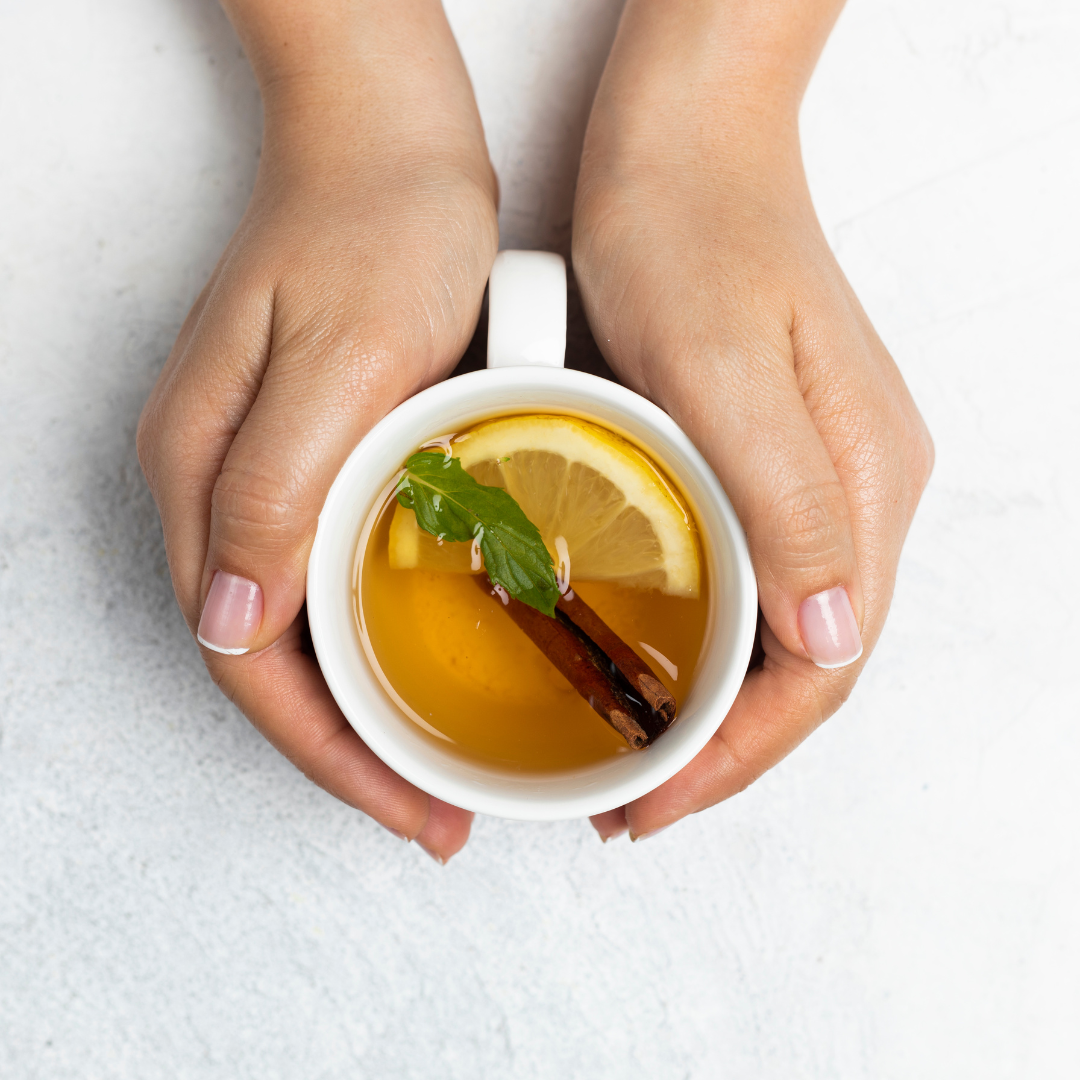
6. Passionflower Tea
Passionflower tea is made from the dried leaves, stems, and flowers of the Passiflora incarnata plant. This herb has a long history of use as a relaxing cure and is recognized for its capacity to encourage relaxation and lower anxiety.
Gamma-aminobutyric acid (GABA), a neurotransmitter that helps control anxiety and fosters mental calmness, has been proven to rise in the brain. Drinking passionflower tea can help reduce anxiety symptoms, such as racing thoughts and stiffness.
Passionflower's calming effects may also be due to its ability to relax muscles. In addition to its effects on mental relaxation, it can help reduce muscle tension and encourage physical relaxation.
This may be especially helpful for those with muscle tension or discomfort brought on by stress. It was discovered that passionflower has negligible antidepressant effects.
It might improve mood and lessen minor depressive symptoms brought on by ongoing stress. Integrating passionflower tea into a regimen for comprehensive stress management may promote mental health and a happier outlook.
When eaten in moderation, most people often consider passionflower tea safe. It is not addictive and does not cause the sedative effect sometimes attributed to some drugs.
But if you have specific health issues or are on medication, especially if you are pregnant or nursing, it is best to speak with a healthcare provider.
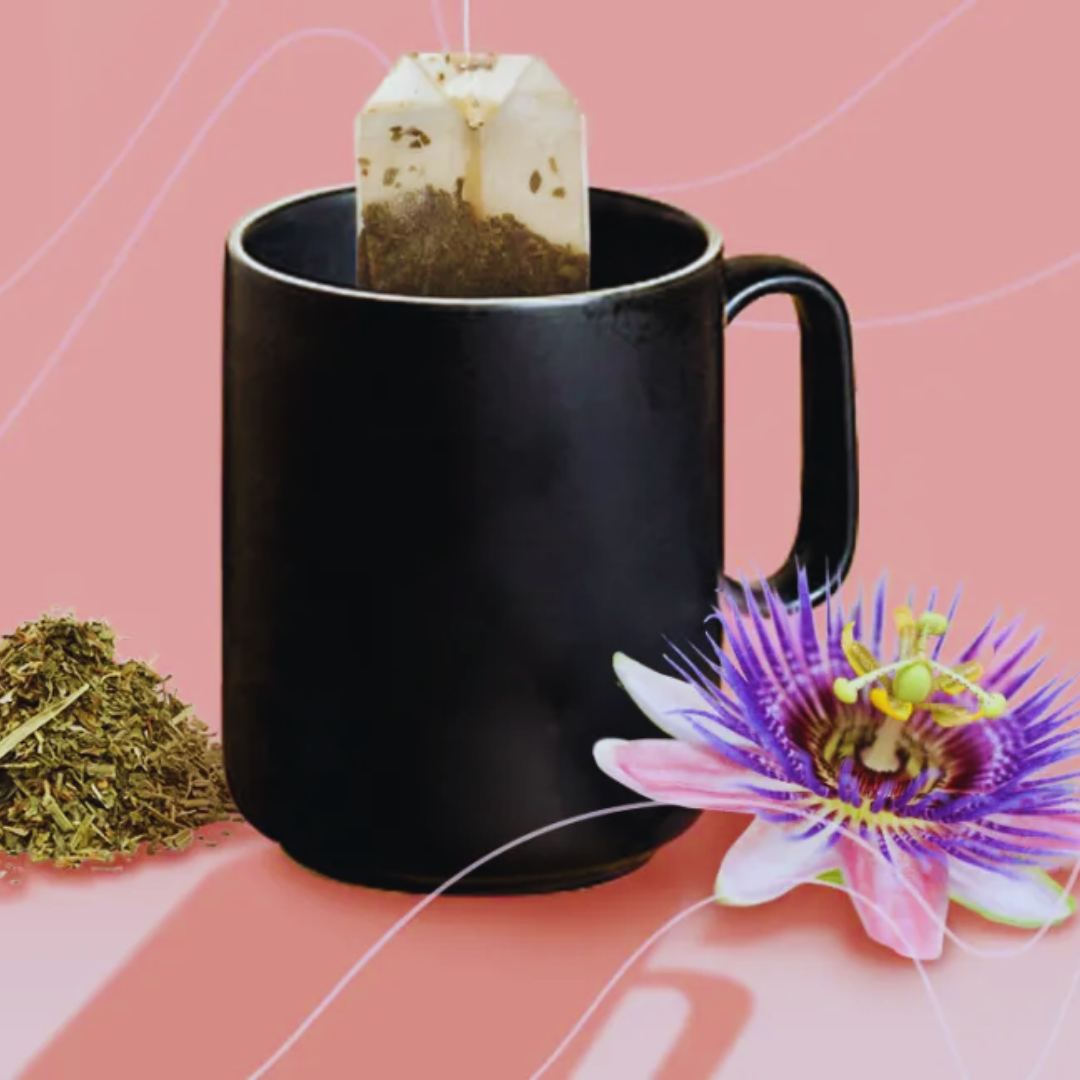
7. Valerian Root Tea
Valerian root includes substances that encourage relaxation and calm the nervous system, such as valerenic acid and valepotriates.
One benefit of valerian root tea is its relaxing properties. It does not produce severe sedation or daytime sleepiness. Its mildly relaxing impact on the neurological system allows people to feel at ease and relaxed without impairing their ability to perform daily tasks or think clearly.
Remembering that different people may react differently to Valerian root is crucial. While many find Valerian root tea calming and stress-relieving, not everyone will react the same way.
It's best to start with a lesser dosage and gauge your body's reaction before boosting your intake. Chronic stress frequently affects sleep cycles and might result in poor sleep hygiene or insomnia.
Valerian root tea is frequently used as a natural sleep aid due to its relaxing effects. It can help relax the body and mind and promote deeper, more restorative sleep. Valerian root tea indirectly alleviates stress by enhancing sleep quality.
Valerian root tea has a powerful, earthy flavour and aroma that may differ from everyone's taste. Its flavour can be enhanced by blending it with other herbal teas or by including honey or other natural sweeteners.
As with any herbal therapy, speaking with a doctor before using it is advised, especially if you have a medical condition or are on medication, because valerian root may interfere with certain medications.
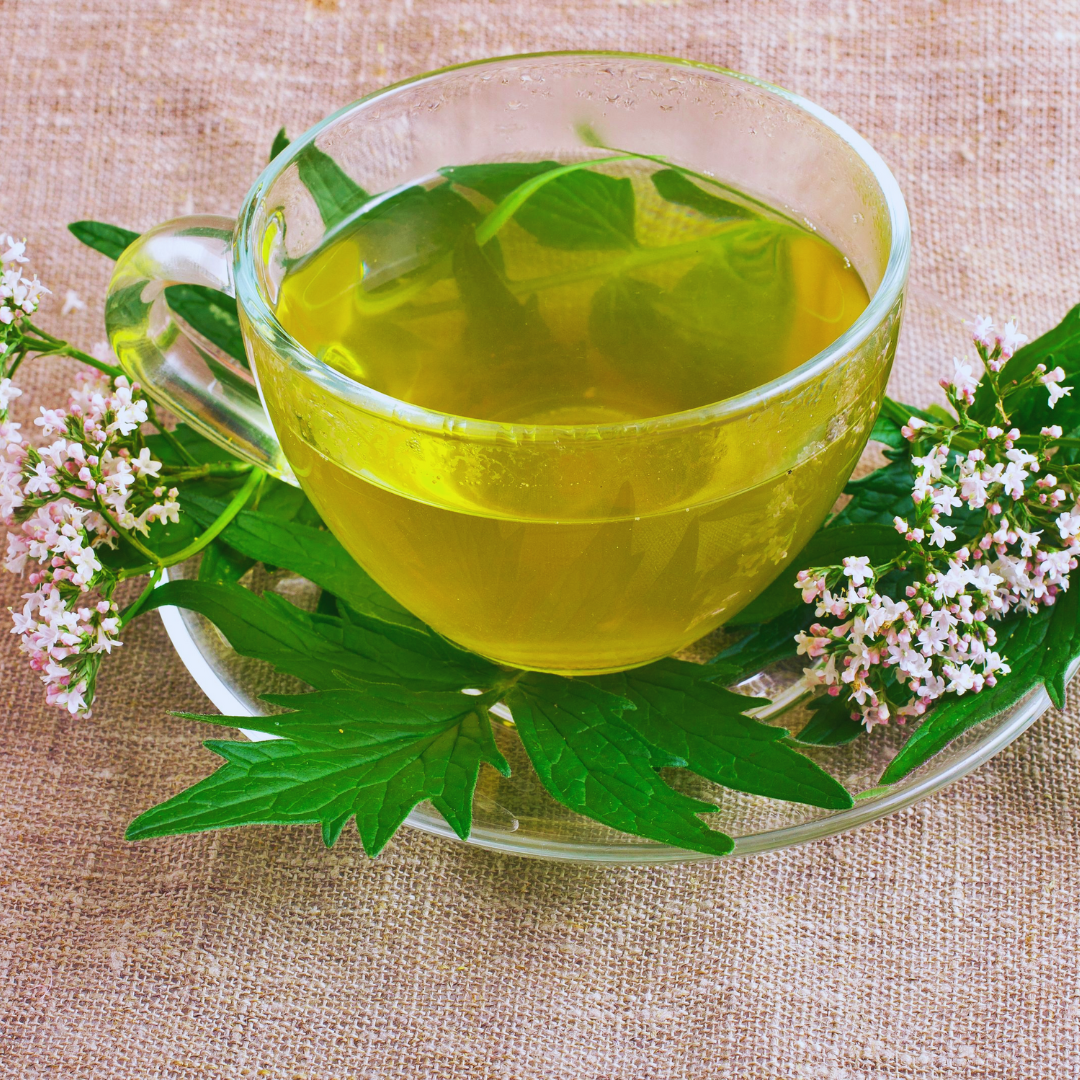
Conclusion
Various teas can effectively encourage relaxation and stress reduction. When selecting a tea to reduce stress, consider your tastes, possible drug interactions, and medical concerns. If necessary, seek the advice of a healthcare provider.
Although tea can be a useful tool for managing stress, it's crucial to take a holistic approach, integrating healthy living habits and mindfulness practices and seeking support when needed.
Adopting these techniques into your everyday routine can create a calming and encouraging environment for your general well-being and stress management.
Whether a blend contains caffeine will affect how much tea you drink daily. Limiting your caffeinated tea intake to three cups per day is generally advised.
You can drink more cups of decaffeinated tea every day, but be cautious of any possible adverse effects specific to the beverage. If there are any side effects, be aware of them and make adjustments if necessary.
I trust you enjoyed this article on the Best Teas for Stress Relief. Please stay tuned for more inspiring guides, helpful tips, and ideas to help you live closer to nature every day.
Take care!
— JeannetteZ🌿
💬 Your Opinion Is Important To Me
Do you have thoughts, ideas, or questions? I’d love to hear from you. Please leave your comments below or email me directly at Jeannette@Close-To-Nature.org.
📚 More Nature-Inspired Reads
Explore more ways to connect with nature, nurture your pets, and live in harmony with the world around you 🌿

